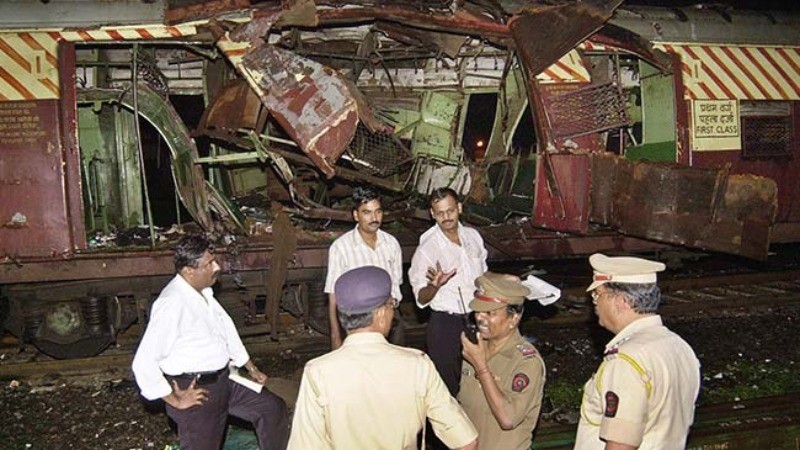
In a special verdict, the Bombay High Court had acquitted all 12 accused in the 2006 Mumbai train blasts, setting aside the earlier judgement by the lower court. Now, the Maharashtra Government has moved to the Supreme Court to challenge the High Court verdict. Solicitor General Tushar Mehta appeared for the Maharashtra Government seeking an urgent hearing for the case. A bench of Chief Justice BR Gavai and Justice K Vinod Chandran has listed the matter for Thursday.
The Mumbai train blasts had claimed 189 lives, leaving over 800 people injured on July 11, 2006. After nineteen years of the tragic accident, the Bombay High Court passed a judgment acquitting all the 12 accused in the case. Contrary to this, the lower court on September 20, 2015, had sentenced five individuals to death, while the remaining ones were given life imprisonment.
The High Court bench of Justice Anil Kilor and Justice Shyam Chandak had set the trial court verdict aside, stating that the prosecution had failed to 'establish' the case against the accused. Ordering the immediate release of the accused if they are not detained in any other case, the bench said, "The prosecution has utterly failed to prove the case against the accused. It is hard to believe that the accused committed the crime. Hence, their conviction is quashed and set aside."
The special court of Maharashtra Control of Organized Crime Act (MCOCA) had sentenced Faisal Shaikh, Asif Khan, Kamal Ansari, Etesham Siddiqui, and Naveed Khan to death. The other convicts of the case, namely, Mohammad Sajid Ansari, Mohammad Ali, Dr Tanveer Ansari, Majid Shafi, Muzammil Shaikh, Sohail Shaikh, and Zameer Shaikh, were sentenced to life imprisonment for being a part of the conspiracy.
The 2006 Mumbai train blasts had ripped through the Mumbai suburbs from Matunga to Mira Road railway stations within 11 minutes. The bomb blasts occurred during the peak hours, when people were returning home from work. The first blast occurred at 6:24 pm, and the last one at 6:35 pm.